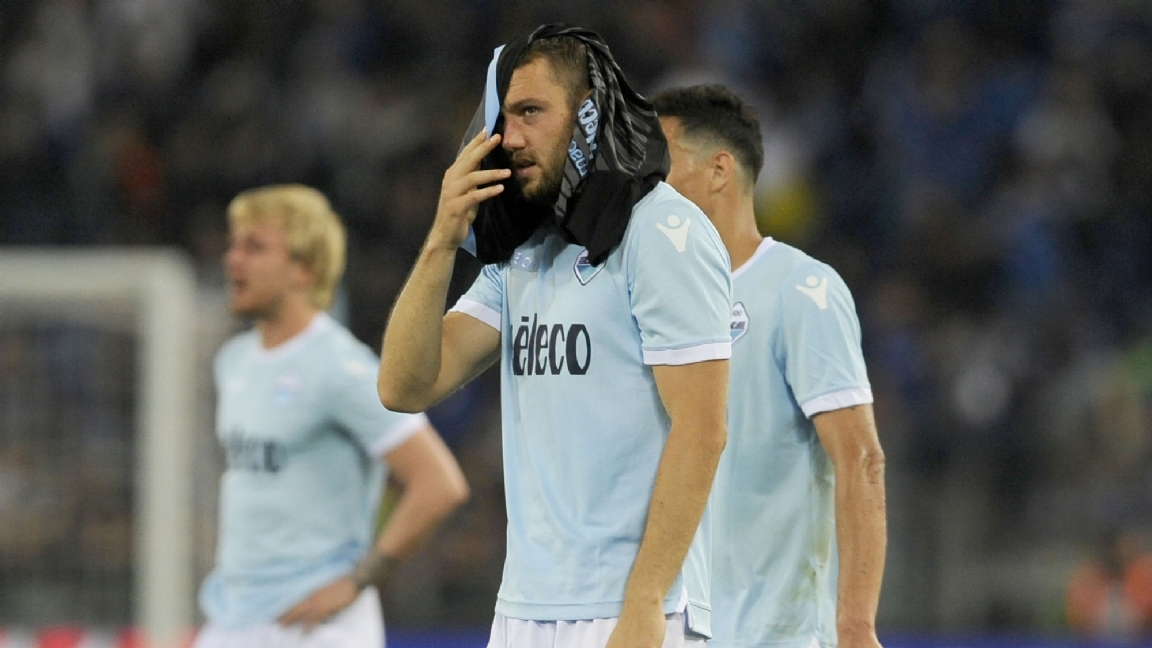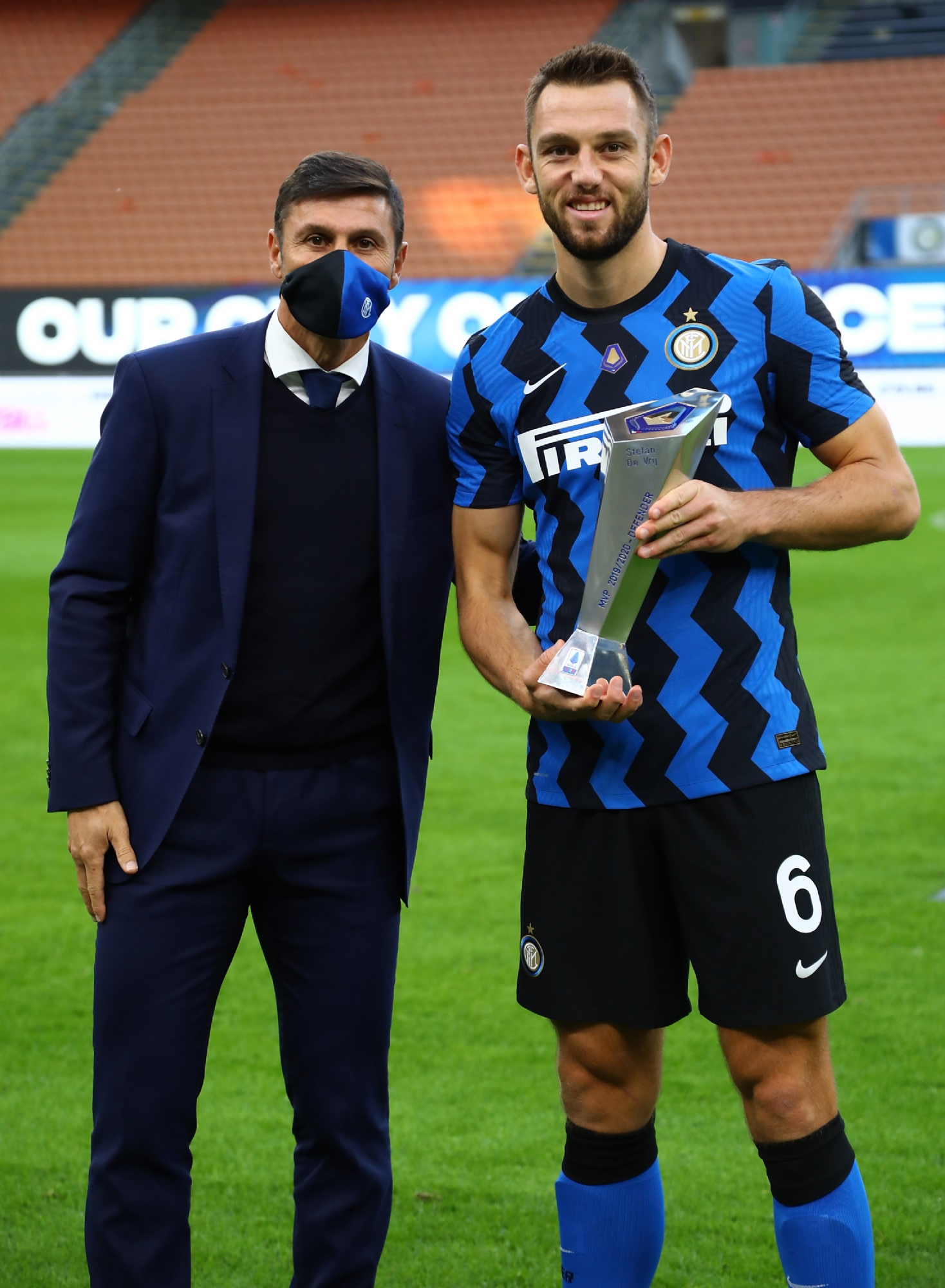

Stefan de Vrij was not fully informed by the real estate agency he worked with about his switch from Lazio to Internazionale in the summer of 2018. Follow the Money Saturday. Research by the journalistic platform shows that De Vrij assumed that real estate agency Sports Entertainment Group (SEG) represented him, but that in reality the office only acted on behalf of Inter. The disagreement resulted in De Vrij breaking up with SEG and is now being assisted in business by Mino Raiola.
De Vrij has been guided by SEG since he was sixteen. A written agreement was never drawn up, because mutual trust was great. De Vrij became good friends with his agent Doniphan Slager, who still works for SEG. They went on vacation together, saw each other at weddings and at a funeral. At the beginning of 2018, De Vrij’s contract with Lazio was approaching. Interested clubs, including Barcelona, Atlético Madrid, Zenit Saint Petersburg and Inter, lined up. Although De Vrij did not want to leave transfer-free, no agreement was reached on a new contract. Sporting director Igli Tare blamed ‘the agents’ for the failed negotiations.

Stefan de Vrij was voted best Serie A defender of the 2019/20 season in August 2020.
According to Follow the Money De Vrij thought that SEG performed for him, but SEG states that the defender himself negotiated with Lazio and ‘various other clubs’, without reaching an agreement. After a departure from Lazio became inevitable, his agents gradually directed De Vrij towards Inter. The contract was arranged by top agent Jeroen Hoogewerf from SEG. De Vrij soon felt at home in Milan, but became suspicious of his agents: he had not received any signing money, something which certainly often occurs with transfer-free agreements. Inter’s annual report (page 13) for the 2017/18 season nevertheless shows that the club lost 7.5 million euros on his arrival. According to confidential documents that Follow the Money that money disappeared into SEG’s pockets in three installments.
Those documents also state that SEG only represented Inter’s interests. According to FIFA intermediary regulations, agents may not have dual interests in a deal, and SEG owner Kees Vos is aware of this. “We didn’t perform for Stefan, but for Inter, and he knew it,” says Vos. According to Follow the Money However, De Vrij only found out after the deal was closed. The documents show that SEG will be paid 200,000 euros for every six months that De Vrij plays football at Inter. If the the Dutch International transfers in the future, the brokerage office will receive 7.5 percent of the transfer fee. Inter’s annual report (page 21) for the 2018/19 season indeed mentions payments to the brokers of De Vrij.
The world of football transfers is shadowy. A player is sometimes left in the dark as to whether his agent is actually acting on his behalf, or acting on behalf of a club. With leading roles for @Stefandev, @thomasvermaelen, @SEG_Football and @Inter. https://t.co/IRahJUFddz
– Pepijn Keppel (@pepijnkeppel) May 1, 2021
However, SEG would only earn money if De Vrij were to actually sign a contract and earn a maximum of fifty million euros gross during the duration of his five-year contract; the salary that SEG negotiated for De Vrij was significantly lower. The youth exponent from Feyenoord would not know anything about that agreement between SEG and Inter. He was told by the office that SEG received a 12 percent commission on the deal and that the signing money was included in his salary, it sounds. “Inter was probably the right choice for De Vrij,” says a leading SEG agent anonymously. “But if Inter hadn’t paid SEG that much money, he wouldn’t have gone there, and SEG would have found him another club. But they paid SEG enough, so De Vrij went there. Even if he hadn’t wanted to. ”
Hoogewerf has Follow the Money show an Italian document in which it is written that SEG acted on behalf of Inter, while De Vrij was not represented by anyone according to the same document. De Vrij signed that document himself. “There is a lot of smoke in the transaction, but we do not recognize ourselves in the image that we have deliberately kept it away from him,” emphasizes the man who finalized De Vrij’s contract. De Vrij himself does not want to respond; a former SEG employee finds it ‘unfair’ what happened to the defender and speaks of a lack of transparency. At the same time, the footballers agreed, because SEG acted on their behalf. I don’t want to defend SEG, but what it did was not wrong. The players were represented by SEG, which only cost the players commission. The collaboration is entirely based on trust. But when it came down to it, that turned out not to be the case. ”